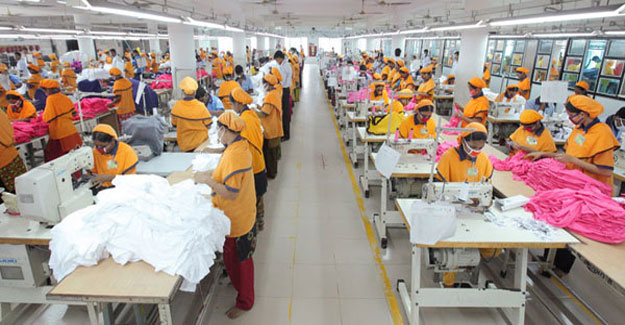
Fast Growing Domestic Flexi Staffing Market To Lend Support To Garment Sector
With the rapidly-changing market scenario, businesses across sectors are forced to imbibe more agility and robustness in order to proactively respond to the changes taking place around them. Apart from technological interventions, they are also hard pressed to bring about flexibility in their workforce, which can allow them to respond to the market demand not only in a more cost effective way but also in a swift manner. The Indian garment manufacturing is one such business that is currently faced with multiple challenges as being an export-driven business it is desperately trying to bring about the much-needed changes that the emerging global needs currently call for. Garment units today need to be extremely proactive and robust to market opportunities and challenges, even as they have often failed to do so. Being labour intensive and also faced with seasonality of demand, garment units need to possess flexible workforce and the solution to this lies in the fast-emerging flexi or temporary staffing sector. The concept where organisations don't hire employees on their rolls, but source their manpower requirement for certain functions from entities called staffing companies. Though the concept in its unorganised form has been in existence for several years, the organised structure where the workforce being on the rolls of flexi staffing companies (FSCs), enjoys most of the statutory benefits employment (such as EPF, ESI, medical insurance), is gaining ground in India. From being confined only to a few sectors, the phenomenon of flexi or contract staffing is spreading its wings across various sectors. With over 12.5% penetration, the ITeS sector currently leads the table, followed by IT, e-commerce and BFSI. Pharmaceuticals, manufacturing/ machinery and education, training & consultancy are the other sectors that enjoy higher levels of penetration of flexi staffing in India. Going forward, spread will be more diverse as more and more sectors are following this concept. "With businesses undergoing transition, the Indian staffing market has gained momentum. In the last five years, it has grown at a CAGR of over 20% and this will be maintained going forward as well. Skill India Initiative, GST, EPF reform, and ESIC reform, among others, have been conducive to India's staffing growth story. Flexi staffing is one such engine that can help drive this agenda and help India become the top-ranked flexi staffing market, globally," says Rituparna Chakraborty, president, Indian Staffing Federation (ISF), the apex industry body. India's flexible workforce is predicted to double by 2021, according to data from the ISF. The data found that India's flexible workforce grew at a compound annual growth rate of 16.3% to 3.3 million in 2018 as compared with 2.1 million in 2015, making it the fifth largest market worldwide in flexistaffing in 2018. Growth is expected to accelerate to 22.7% between 2018 and 2021 and taking the total number of flexistaffers to 6.1 million by 2021. Experts are of the view that many labour intensive sectors like garmenting will migrate to outsource their workforce requirement from the formal channel like the staffing market which is somehow a new phenomenon in the Indian context. Flexi-staffing phenomenon is a boon to companies as it enables them to adapt to seasonal, structural and cyclical changes in the labour market. Many organisations are looking to adapt themselves to predictable and unpredictable changes and with good reason. An ISF study has revealed that 60% of the organisations engaging temporary staff accelerate faster out of a downturn, they say. "Flexi staffing in the coming years will be on a fast-paced growth trajectory, as there is huge opportunity for organisations to use it to meet organisational needs and objectives with the appropriately skilled resources for a given role. Not just that, as flexi staffing moves up the value chain in an organisation and the future workforce becomes agile, mobile and flexible, the opportunity for us as staffing organisations to grow and create impact is immense," says Paul Dupuis, chairperson, research committee, ISF.
Textile Excellence
If you wish to Subscribe to Textile Excellence Print Edition, kindly fill in the below form and we shall get back to you with details.












